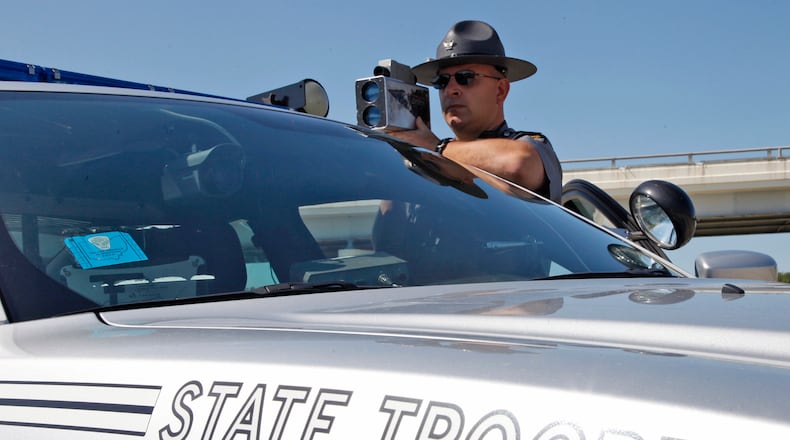“There are definitely people taking advantage of less traffic on the highways,” said Staff Lt. Craig Cvetan, public affairs commander with the Ohio State Highway Patrol.
Between March 23 and April 19, the Ohio State Highway Patrol issued 1,195 speeding citations, which is down more than 95% from a comparable four-week period in 2019, according to state data.
In 2018, the state patrol issued 30,992 citations in a similar span.
Coronavirus: Complete Coverage by the Dayton Daily News
But in the last month, troopers have stopped and cited 154 motorists for driving in excess of 100 mph.
That’s up more than 18% from 2019, and it’s only five fewer citations than in 2018, state data show.
Fewer troopers are enforcing traffic laws right now, because they are helping out with prison perimeter security and rest stop security checks and other off-highway assignments, officials say.
But troopers are still directed to conduct stops when the public is put in danger, Cvetan said.
MORE: Coronavirus: Dayton region’s job losses exceed all gains since Great Recession
Drivers aren’t just being clocked at triple-digit speeds.
In the last month, about 794 motorists in Ohio have been pulled over and cited for driving more than 20 mph over the speed limit. However, that is down from 5,488 citations in a four-week span last year.
During the COVID-19 crisis, states across the country reporting a spike in severe speeding, according to the Governors Highway Safety Association.
This is alarming because emergency rooms in many places are at capacity, and the last thing they need is additional strain from traffic crash victims, the association said.


